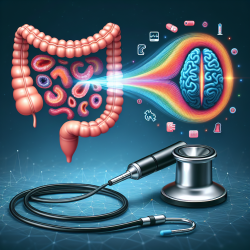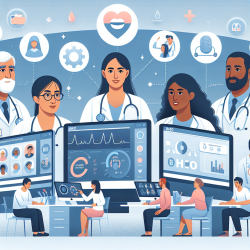Introduction
In the ever-evolving field of medical diagnostics, the integration of artificial intelligence (AI) has been a game-changer, particularly in the detection and diagnosis of colorectal lesions. The recent study titled "Deep learning driven colorectal lesion detection in gastrointestinal endoscopic and pathological imaging" sheds light on how deep learning can revolutionize early detection and improve outcomes for colorectal cancer patients. This blog aims to guide practitioners on how to harness these insights to enhance their diagnostic skills and encourage further research.
Why Deep Learning Matters in Colorectal Lesion Detection
Colorectal cancer ranks as one of the most common cancers worldwide, with early detection being crucial for improving survival rates. Traditional diagnostic methods, although effective, often suffer from limitations such as long diagnosis times and a high potential for missed or misdiagnosed cases. This is where AI, and specifically deep learning, comes into play.
Deep learning, a subset of AI, involves training neural networks to recognize patterns in data. In medical imaging, this means analyzing endoscopic images to detect abnormalities with high accuracy and sensitivity. The study highlights how deep learning can be applied to enhance the detection rate of colorectal lesions, thereby reducing mortality and improving patient outcomes.
Implementing Deep Learning in Practice
For practitioners looking to integrate deep learning into their diagnostic processes, the study offers several practical insights:
- Enhanced Image Analysis: Deep learning algorithms can process endoscopic images rapidly, identifying potential lesions that may be missed by the human eye. This can be particularly beneficial in busy clinical settings where time is of the essence.
- Reducing Diagnostic Errors: By leveraging AI's ability to learn from vast datasets, practitioners can minimize the risk of missed diagnoses and false positives, ensuring more accurate patient assessments.
- Continuous Learning and Adaptation: AI systems can continuously learn and adapt from new data, improving their diagnostic capabilities over time. This dynamic nature of AI makes it a powerful tool in the ever-changing landscape of medical diagnostics.
Encouraging Further Research
While the current study provides a strong foundation, there is ample room for further exploration. Practitioners are encouraged to engage in research that addresses the existing limitations of AI in medical imaging, such as system stability and the need for larger, more diverse datasets. Collaborative efforts across institutions can lead to the development of more robust AI models that can be universally applied.
Conclusion
The integration of deep learning in colorectal lesion detection represents a significant advancement in medical diagnostics. By adopting these technologies, practitioners can enhance their diagnostic accuracy, reduce the burden of missed diagnoses, and ultimately improve patient outcomes. As the field continues to evolve, ongoing research and collaboration will be key to unlocking the full potential of AI in healthcare.
To read the original research paper, please follow this link: Deep learning driven colorectal lesion detection in gastrointestinal endoscopic and pathological imaging.










